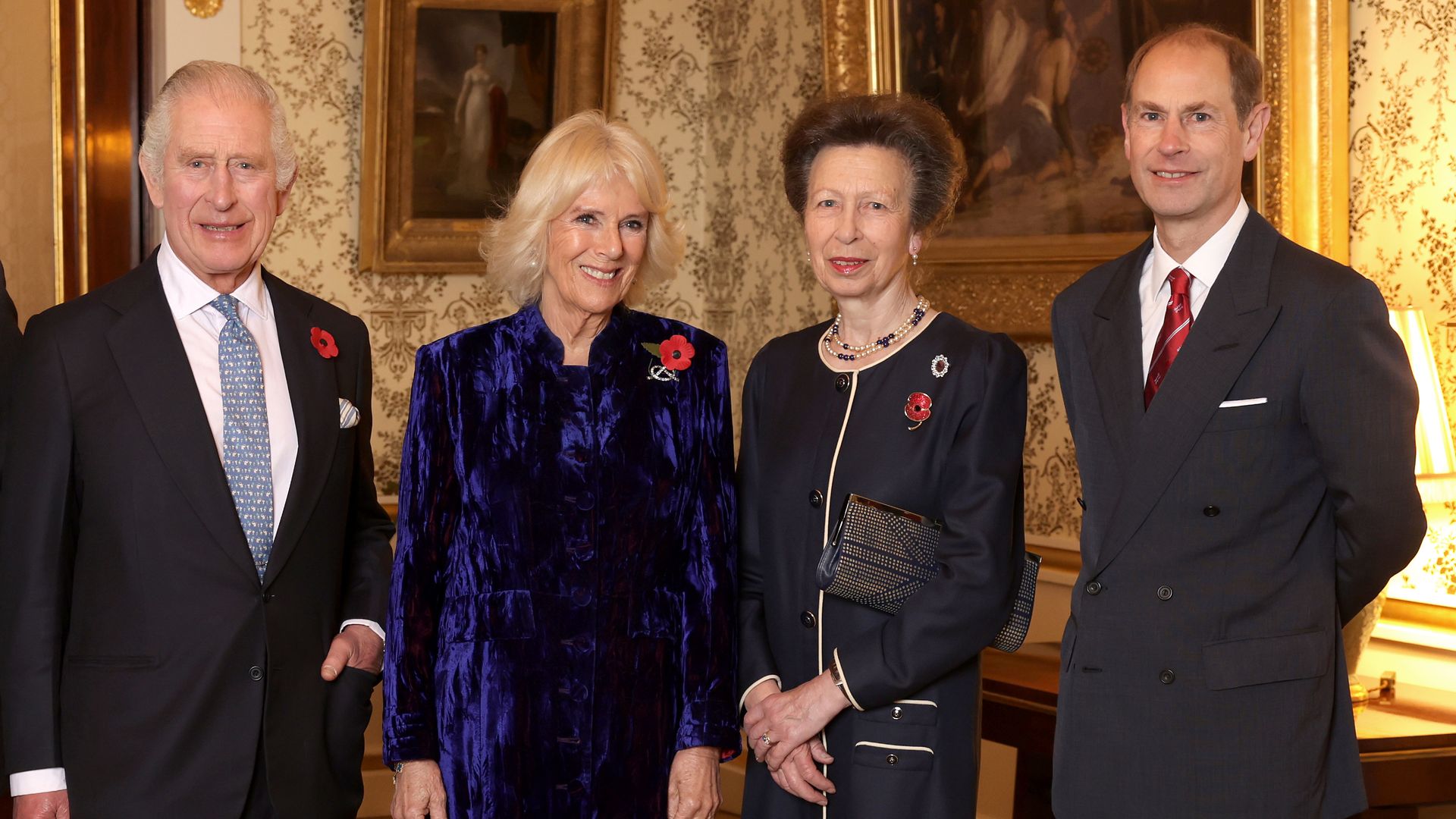The Unexpected Serenade: A 77th Birthday Surprise for King Charles III at Windsor
The Unexpected Serenade: A 77th Birthday Surprise for King Charles III at Windsor
The 77th birthday of His Majesty King Charles III was destined to be an occasion of quiet grandeur, a carefully orchestrated blend of state formality and family intimacy at Windsor Castle. Held in the opulent, yet warmly lit, setting of the Grand Reception Room, the gathering included senior members of the Royal Family, close friends, and dignitaries. As the evening progressed, marked by dignified toasts and polite conversation, the event embodied the refined tradition expected of a sovereign’s celebration. However, what unfolded unexpectedly transcended the carefully planned royal protocol, injecting a moment of profound, spontaneous emotion that captured the heart of the monarchy’s enduring human core.
The Setting: An Evening of Measured Elegance
The Grand Reception Room at Windsor, with its gilded mirrors, enormous chandeliers, and intricate parquet flooring, served as the backdrop for the King’s birthday dinner. The atmosphere, while celebratory, maintained a traditional royal reserve. King Charles, the central figure, was observed engaging in his customary conversations—warm, yet always maintaining the requisite monarchical distance. Queen Camilla was by his side, presiding over the company with grace.
The Prince and Princess of Wales, William and Catherine (Kate), were seated near the King, their presence offering a comforting sense of continuity. Their three children, Prince George, Princess Charlotte, and Prince Louis, had been allowed a brief appearance earlier in the day but were understood to have retired, allowing the adult proceedings to continue.
It was during a lull between the main course and the King’s final address that the surprise was initiated. The doors at the far end of the room, typically reserved for the arrival of staff or a minor dignitary, softly opened.

A Silence Descends: “This Is For You, Grandfather”
All eyes turned as a small procession entered. It was not a royal aide, but a single figure: the Princess of Wales, Kate, who guided her two eldest children, Prince George, aged twelve, and Princess Charlotte, aged ten, into the room. George, dressed smartly in a small suit, looked nervous but resolute. Charlotte, in a classic party dress, held her mother’s hand tightly.
Kate led the children to a central, open area of the room, offering a subtle, reassuring squeeze of their hands before melting into the background, positioning herself beside Prince William. An immediate, palpable silence descended upon the room. The transition from polite chatter to complete quiet was instantaneous—a testament to the surprise and the inherent curiosity surrounding the future of the monarchy.
Prince George stepped forward slightly, taking a breath that could be heard in the stillness. He looked directly at King Charles, who was now leaning forward in his chair, a look of profound confusion and curiosity on his face.
“Grandfather,” George began, his voice clear but wavering slightly. “We know that your birthdays are usually very formal. But this year, Charlotte and I wanted to give you a present that… we made ourselves.” He paused, offering a genuine, childish smile. “This is for you, Grandfather,” he finished, a simple, unadorned declaration of familial love.

The Serenade: A Bridge Across Generations
Charlotte then stepped up alongside her brother. The children began to sing. It wasn’t the traditional “Happy Birthday” often sung by crowds, but a piece chosen with surprising emotional depth: a gentle, heartfelt rendition of “A Nightingale Sang in Berkeley Square.”
The choice was poignant. The song, a romantic classic from the 1940s, is associated with a melancholic nostalgia, a nod perhaps to the King’s own profound connection to history and his late mother’s era. More importantly, it was sung with an earnestness that surpassed their youthful voices. George, the future King, sang the melody with careful, studied pitch, while Charlotte provided a light, clear harmony. They stood there, two small figures framed by the grandeur of the room, singing only to their grandfather.
The effect on the room was immediate and transformative. The faces of hardened diplomats softened; the stiffness of the royal guests melted away. This was not a performance for the public, but a purely personal gift, delivered by children who knew no protocol other than affection.

The King’s Emotion and the Parents’ Pride
King Charles III was visibly, powerfully moved. He had weathered countless public ceremonies, stood firm through numerous state crises, and maintained a stoic demeanor through a lifetime of duty. Yet, this simple, tender gesture from his grandchildren broke through. The King’s eyes, usually sharp and observational, welled up. He brought a hand to his mouth, his shoulders slightly shaking, a powerful demonstration of the unexpected depth of his emotion. In that moment, he was not the sovereign, but simply a grandfather receiving a gift of love.
Watching from the side, Prince William and Princess Catherine struggled to maintain their composure. The pressure on William, knowing his children were delivering such a public and intimate performance, must have been immense. But as the song progressed, their anxiety gave way to shared, profound pride and emotion. Prince William and Kate were seen wiping tears from their eyes. Their tears were not just for the beautiful song, but for the success of their children’s mission—to give their beloved grandfather a moment of pure, unadulterated happiness, and for the powerful public glimpse into the genuine affection that binds the family together.
The Aftermath: A Lesson in Legacy
When the children finished, the silence held for a beat before erupting into a roaring ovation. King Charles rose from his seat, walking directly toward his grandchildren, ignoring all established protocol. He embraced George and Charlotte in a long, tender hug, saying a few words to them privately, his voice thick with emotion.
The unexpected serenade served as a powerful reminder of the human element beneath the crown. It highlighted the fundamental relationship between a monarch and his successor’s children—a connection that ensures the continuity and future of the institution. On his 77th birthday, King Charles III received a gift far more valuable than any jewel or title: a spontaneous, moving affirmation that the line of succession is built not just on law and duty, but on deep, abiding family love. This surprise moment at Windsor will undoubtedly be recorded, not in state papers, but in the cherished memory of the House of Windsor.


